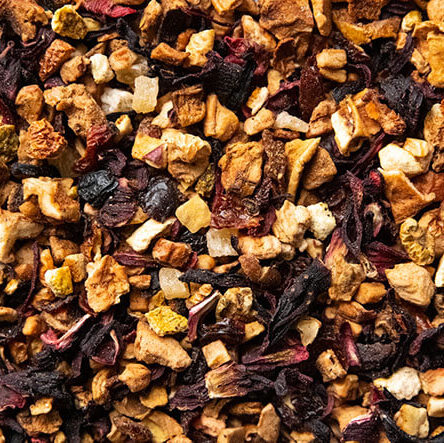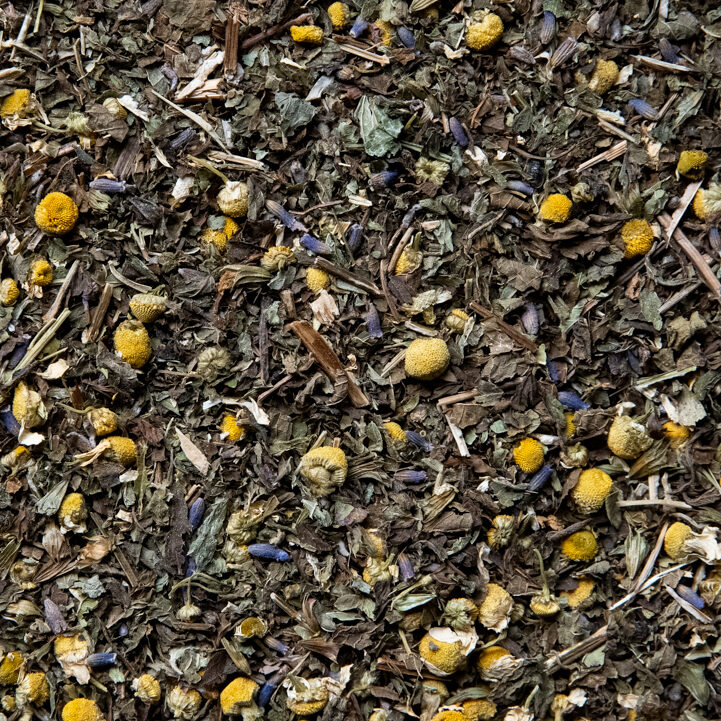Tisane is the term used in the tea industry for any infusion that does not contain Camellia Sinensis. Anything referred to as "Tea" technically needs to contain the dried leaves of the Camellia Sinensis plant for it to really be a tea! Caffeine free and often packed with health benefits, more and more people are turning to a Fruit Tisane or Herbal Infusion for their hot drink of choice.

Herbal Teas and Tisanes have been enjoyed for thousands of years for their refreshing taste and healing qualities as an early herbal remedy. It is thought that it's origins date back to the ancient greeks; the word Tisane originating from the Greek "ptisanē", a medicinal drink.
Like tea, it is likely that the first type of tisane or infusion came from ancient Chinese culture. Legend has is that the first form of Tisane was created by the first ruler of China, Shannon in the 2nd Millennium BC. Among many other things, Shannon "Divine Farmer" was accredited with the discovery of medicine, acupuncture, farming and tea. Considered the father of Chinese medicine he is said to have first tasted tea when burning twigs, the leaves of which fell into his pot of boiling. After tasting this infusion (or tisane) he was pleasantly surprised and thus began his experimentation with tea, concocting hundredes of blends of medicinalherbal tisane
Since the rise of third wave cafe culture in the mid naughties, there has been a rising demand for higher quality tisanes and and a wider range of them. As a caffeine free alternative to coffee or tea we've seen much more people opting for a tisane in our cafes over recent years. They also serve as the ideal base for iced teas, offering some unique flavours with a lower sugar content to make soft drinks.
In the USA it is thought that the popularity of Herbal Infusions and Tisanes dates back to the Boston Tea Party in 1773. When 342 chests of tea were dumped into Boston Harbour as protest again rises taxes on tea from the British East India Company, Americans started turning to coffee as well as other infusions and tisanes.


Tisanes can be made from all different parts of the plant, not just the leaves. Roots, stems, flowers, leaves, and fruit can all be used when creating a blend but generally they fall into the categories; fruit or herbal tisane. Fruit Tisanes usually consist of all dried fruit ingredients while herbal tisanes are usually made up of different parts of the plant.
When brewing we recommend starting with 1/2 a teaspoon per cup and adjusting to taste as these tisanes can really pack a punch! Because of their intense flavour they also make for a perfect iced tea. This is great, low sugar and cheaper alternative to a soft drink. Just brew double strength and dilute with ice.
Unlike a tea, tisanes can be a bit more forgiving when brewing. The flavour itself will remain more or less the same when using different brew ratios. Just alter your dose or brew time until you find the right strength for you. Unlike high quality green and white teas however, we recommend brewing only once, as flavour will deteriorate after consecutive brews.